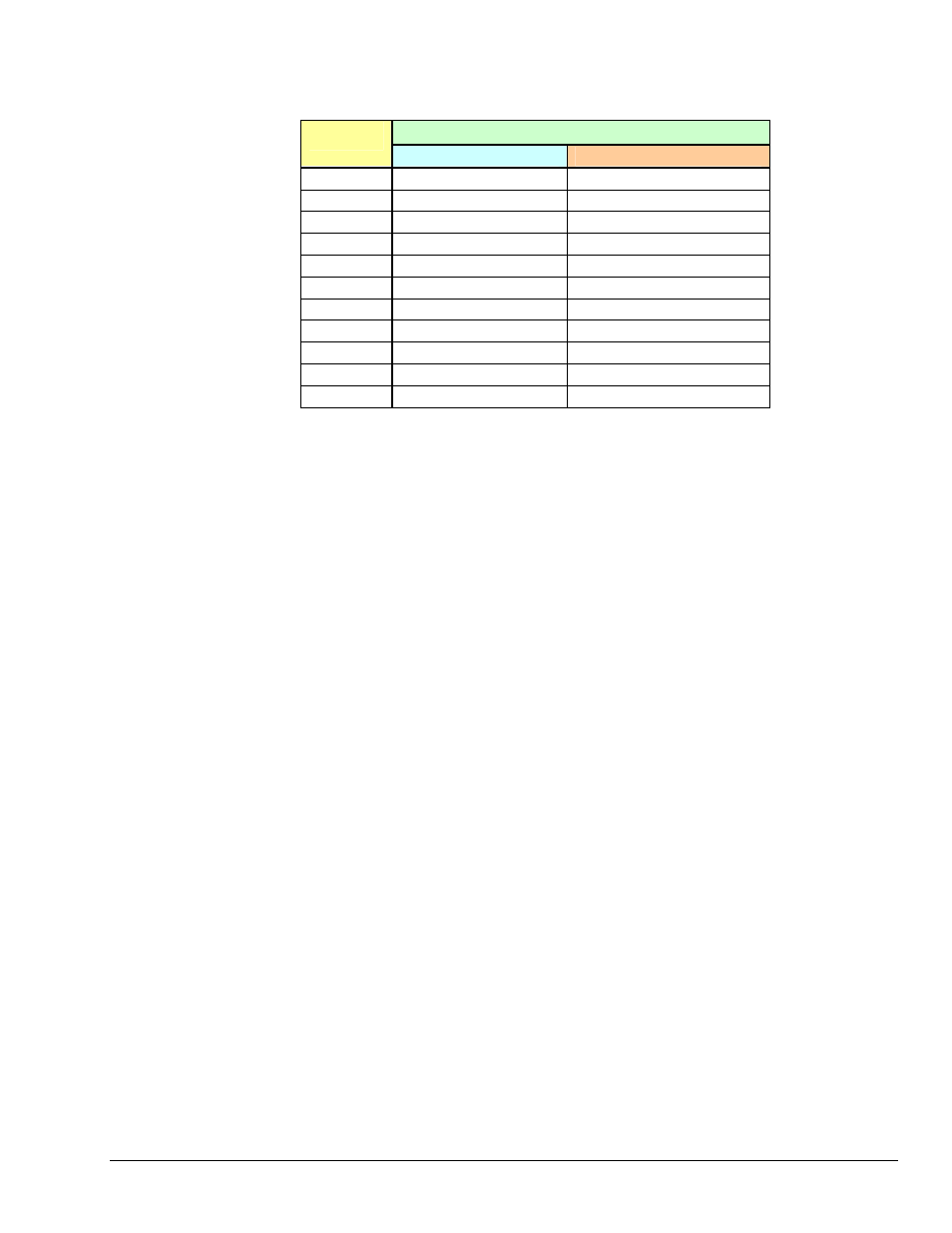Terminal block connection – Measurement Computing DBK Part 2 User Manual
Page 15

DBK Option Cards and Module
967694
DBK42, pg. 3
A DBK42 populated with strain-gage modules will draw more current than with other types of input
modules. The table shows the DC input requirements for the worst-case setup (with 16 strain-gage
modules or 16 thermocouple modules).
Input Amperes
Input Volts
With Strain-Gage Modules
With Thermocouple Modules
10 VDC
3.0 A
0.60 A
11 VDC
2.7 A
0.54 A
12 VDC
2.4 A
0.48 A
13 VDC
2.2 A
0.44 A
14 VDC
2.0 A
0.40 A
15 VDC
1.9 A
0.38 A
16 VDC
1.8 A
0.36 A
17 VDC
1.7 A
0.34 A
18 VDC
1.6 A
0.32 A
19 VDC
1.5 A
0.30 A
20 VDC
1.4 A
0.28 A
Power sources include:
•
The standard TR-25 AC plug-in power pack (provided with the DBK42) can supply 900 mA at
15 VDC. The optional TR-40U can supply 2700 mA at 15 VDC.
•
The DBK30A battery pack can supply power for a typical DBK42 configuration; however, in a
fully-populated strain-gage configuration, the battery run-time will be limited to about 1½ hours.
•
A 12 V lead-acid gel-cell type battery can easily power a fully-populated strain-gage
configuration. The battery drain will be about 2.4 A-hr; battery size should be considered for
systems with long run-times. (For example, a common-size 5.0 A-hr battery will operate for
about 2 hours). A typical automotive 12-V lead-acid battery (e.g., 60 A-hr) can easily power a
DBK42 for long run-times (about 24 hours).
The input fuse is a 4-A Slo-Blo 1-1/4" × 1/4" glass-type such as Littelfuse 313004 or Bussman MDL-4.
Terminal Block Connection
Input signals (and excitation leads) must be wired to the DBK42 signal termination panel. Sixteen
4-terminal blocks accept up to 16 inputs. These connectors are located on a removable PC board that plugs
into two DIN96 rectangular connectors on the rear panel.
Terminal blocks are connected internally to their corresponding signal conditioning module. The terminal
blocks accept up to 14-gage wire into quick-connect screw terminals. Terminals on each block are
numbered 1 through 4. Each type of input signal or transducer (such as a thermocouple or strain gage)
should be wired to its terminal block as shown in the figure. Wiring is shown for RTDs, thermocouples,
20 mA circuits, mV/V connections, and for full- and half-bridge strain gages.
